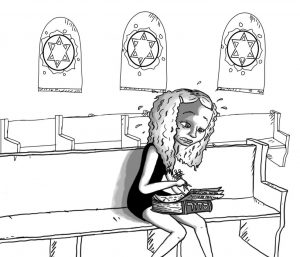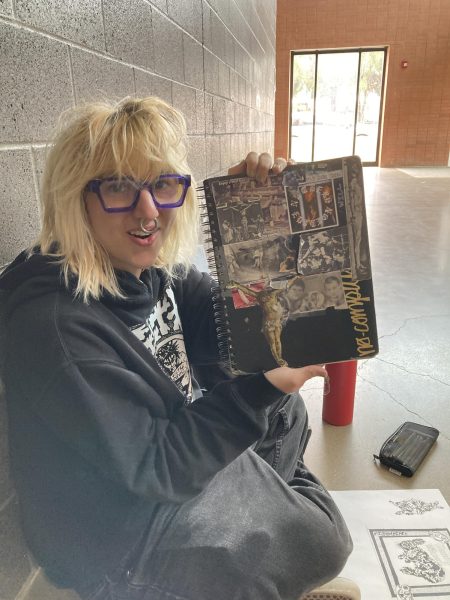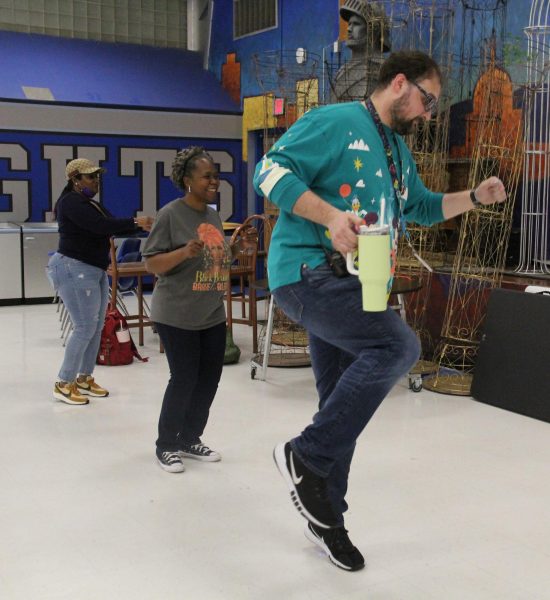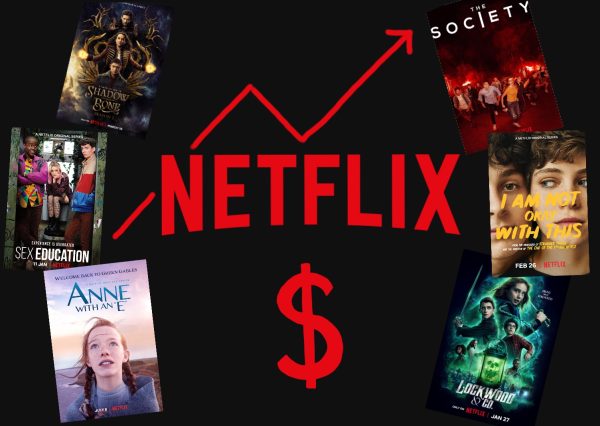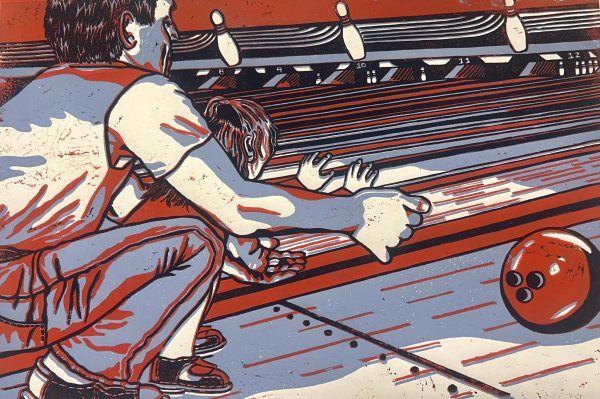Holiday movie marathon must include ‘Home Alone’
Not just nostalgic, classic 1990 Christmas movie still offers van full of laughs, reinforces importance of family
In this quintessential holiday film, young Kevin McCallister is left home alone for Christmas when his boisterous family accidentally forgets him in the holiday travel rush. While Kevin is at first glad to be rid of his many relatives, by the end of the movie he values family and the spirit of Christmas.
December 24, 2022
Home Alone, this quintessential 1990 film, is the marker of the Christmas and holiday season. We reminisce over warm memories with hot cocoa and cookies and watch this nostalgic film. This movie continues to hit home through its relatable display of dysfunctional family dynamics, imaginative childhood, and slapstick humor.
Written by John Hughes, well-known for “The Breakfast Club” and “Sixteen Candles” among other iconic ’80s films, and directed by Chris Columbus, the movie sets place in Chicago following eight-year-old Kevin McCallister (Macaulay Culkin), who is accidentally left home alone, as he is left to defend his house from two burglars.
The movie opens in a rush with the chaotic McCallister household flooded with children packing in preparation for their family travels to Paris for Christmas, emanating a relatable display of family for many during the crazed holidays. Following an argument between Kevin and his mother Kate (Catherine O’Hara), Kevin exclaims “I hope I never see any of you jerks again!” He spends the night tucked away in the attic room, and there is a massive power outage in the neighborhood, shutting off the alarm clocks. The next morning, the family is woken up by a pounding at the door from the airport shuttle service, thus introducing the iconic scene between O’Hara and John Heard: “We slept in!” Mayhem erupts as the McCallisters rush to get ready to leave; however, Kevin is sound asleep upstairs. The family scurries out the door in an attempt to make it to their flight on time, not realizing Kevin was nowhere to be found until they were thousands of feet in the air.
This movie continues to hit home through its relatable display of dysfunctional family dynamics, imaginative childhood, and slapstick humor.
Kevin wakes up alone, somewhat dazed and oblivious to the fact he is the only one awake. He quickly realizes and assesses his family’s absence, however, and determines that he “made [his] family disappear.” Due to the previous night’s incident, he is overjoyed to no longer be pestered by his relatives, allowing him to fulfill his childhood dreams of “eating junk and watching rubbish” in peace. Kevin’s display of indulgences in childhood fantasies that we were often denied like eating bowls of ice cream, jumping on the bed eating popcorn, and firing the BB gun in the house, allows us to live vicariously through his character.
In this newfound freedom Kevin dapples in adulting; however, it often goes astray; stinging himself with aftershave, grocery shopping solo, searching for a toothbrush approved by the American Dental Association, and asserting himself as the “man of the house.” Later that day as he’s winding down, he hears voices of two men coming from outside his house: Harry and Marv; the neighborhood burglars, better known as the “wet bandits,” plotting a heist of the McCallister’s home. Luckily, Kevin reacts in time, making sure to turn on the house lights to alert the men that the house is not empty, successfully scaring them away for the night.
Kevin’s display of indulgences in childhood fantasies that we were often denied like eating bowls of ice cream, jumping on the bed eating popcorn, and firing the BB gun in the house, allows us to live vicariously through his character.
In response to his daunting encounter with intruders and with his influence from the scary movie he watches on repeat “Angels with Filthy Souls,” Kevin commits to an elaborate scheme to deceive the burglars to think the house is filled with people. He strategically puts silhouettes in the windows from cutouts and mannequins moving about with a string. The house blares with Christmas music and shined with all the lights on. Kevin surrounds the exterior of the house with booby traps and other various protective barriers. These scenes cultivate the immaculate cinematic experience of feeling the playfulness and excitement of your childhood in the waking moments of embracing independence. Throughout the process of setting up the house, Kevin’s focus shifts from self-protection to pranking Harry and Marv for his own entertainment, and of course, to teach them a lesson. Harry (Joe Pesci) and Marv (Daniel Stern) dominate these scenes with the perfect amount of slapstick physical comedy to entertain the young audience of the film. This display eases the stress in the reality of the situation, displaying the villains as clumsy non-threatening characters.
Harry (Joe Pesci) and Marv (Daniel Stern) dominate these scenes with the perfect amount of slapstick physical comedy to entertain the young audience of the film.
Among other interactions, Kevin develops a meaningful relationship with an old man from his neighborhood, Marley (Roberts Blossom). He was initially frightened by him as his brother made up a story about how the man was a serial killer. Upon many of their initial meetings, Kevin fled immediately. After Marley saved Kevin from one of the burglars, however, they became good friends. Marley opens up about his estranged relationship with his son and as Kevin helps Marely mend his relationship with his family, he learns that there were many ties in the advice he was giving that he himself should be adopting. This was the turning point of self-realization as Kevin learns gratitude for his family’s involvement in his life and learns to accept them for who they are, despite their flaws.
Home Alone sends a resounding message that reinforces the value of familial support and how we often take it for granted.
Although the film is intended to be a comedic holiday film, there is beautiful character development as Kevin starts out very spoiled and delighted at the absence of his dysfunctional family. In their absence, however, he is forced to grow and learn the responsibilities of adulthood. He eventually realizes his gratitude and love for them despite their frequent bickering. The movie grapples with a deeper meaning of misplaced fault and guilt as Kevin believes he had made his family disappear. Home Alone sends a resounding message that reinforces the value of familial support and how we often take it for granted. Home Alone is perhaps the most fitting film for the holidays as it is the time when we are forced to come together to appreciate our family despite everyone’s faults and differences.




![SINGING FOR SCROOGE: To preface the choir concert, a group of choir members sang Christmas carols in a “Dickens-esque” fashion. Senior chamber choralist, Evelyn Griffin (second from the left), told Macjournalsim that the group stuck to classic Christmas songs. “[We sang] We Wish You a Merry Christmas, some Latin thing, Silent Night, that kind of thing,” Griffin said. “My wardrobe situation was a bit stressful, but I enjoy singing with tenors and basses.” Caption by Lucy Marco.](https://macshieldonline.com/wp-content/uploads/2021/12/dsc00040_51737185954_o-475x317.jpg)
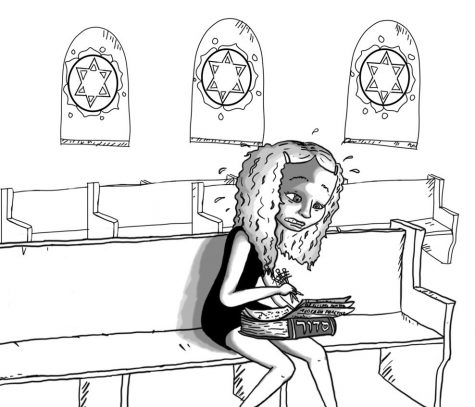

![SINGING FOR SCROOGE: To preface the choir concert, a group of choir members sang Christmas carols in a “Dickens-esque” fashion. Senior chamber choralist, Evelyn Griffin (second from the left), told Macjournalsim that the group stuck to classic Christmas songs. “[We sang] We Wish You a Merry Christmas, some Latin thing, Silent Night, that kind of thing,” Griffin said. “My wardrobe situation was a bit stressful, but I enjoy singing with tenors and basses.” Caption by Lucy Marco.](https://macshieldonline.com/wp-content/uploads/2021/12/dsc00040_51737185954_o-300x200.jpg)
